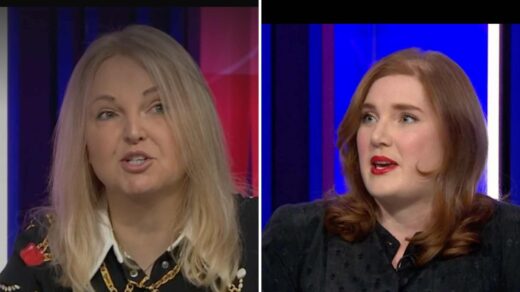What Health Equity Means for Queer Liberation
Author: Adrian Shanker

Queer people have always had to be our own health care advocates. But we shouldn’t have to be. The U.S. government defines health equity as the “attainment of the highest levels of health for all people.” It goes without saying that we have yet to achieve this lofty dream.
As this Pride Month concludes, queer activists everywhere should consider what health equity means for queer liberation. Then we should get to work to fight for the health care our queer bodies deserve.
In Bodies and Barriers: Queer Activists on Health, contributing author Laura A. Jacobs wrote, “Every trans-identified person I’ve ever met has experienced it; a medical interaction during which we felt fetishized or insulted, when a provider used insensitive or inappropriate language, where a professional pried for information not relevant to the clinical issue. Rather than encouraging a bond, these moments only amplified the resistance.”
So many queer and trans people I know have had a negative past experience with a health care provider because of our queer or trans identity. And this frequently translates into a fear of seeking health care in the future. So it’s not a surprise that our community experiences lower rates of both preventative screenings and access to primary care clinicians. And what follows is also not a surprise: that our communities experience higher instances of chronic diseases, including HIV, cancer, and diabetes. The social conditions of our lives lead many of us to engage in higher-risk behaviors for these and other chronic diseases, but our lack of preventative screening means we as a population aren’t accessing the lifesaving early treatment that we need.
This is not the fault of any one of us. And it is antithetical to queer liberation to shame anyone for engaging in behavioral risk that some consider “risky.” Our population has experienced enough shaming and judgement to last a lifetime, and we shouldn’t be shaming each other. Judging others also doesn’t address the real reason we as a population experience such severe health disparities. There are simply too many barriers to care — literal stumbling blocks — standing in between us and the affirming health care we need. These barriers to care are even more burdensome for trans communities, BIPOC queer communities, rural queer communities, queer youth, and queer older adults. Barriers to care can be geographic (for example, entire rural counties without a trans-affirming endocrinologist), clinical (such as gender- restrictive intake forms), or structural (insurance that doesn’t cover certain LGBTQ health care needs.) Sometimes health care providers haven’t received enough training to adequately provide care for our communities. Other times it’s government policies that are slow to change. Barriers to care are pervasive, and they hold us back from our full potential.
My vision of queer liberation includes long, healthy, and vibrant lives for queer and trans people. We exist in the future, and we should be able to achieve longevity to enjoy the victories our community has fought so hard to achieve (while always striving for more). To make that vision a reality, we must incorporate health equity into our queer liberation work. This includes coming out to our health care providers, or when that isn’t possible, switching to an LGBTQ-affirming provider where being out will feel safer. It includes annual physicals and preventative cancer screenings. It includes quitting tobacco. It also includes changing the broken health care system that has left all queer and trans bodies behind. We deserve a Medicare for all system, one where people matter more than corporate profits, and decisions are made based on what is best for our health and our lives.
In the foreword to Bodies and Barriers current U.S. Assistant Secretary of Health Dr. Rachel Levine wrote, “The multidimensional degree of systemic inequalities calls for significant action among health care providers and policy makers. It’s unacceptable for providers and policy makers to continue to turn a blind eye to this issue.”
I agree with Dr. Levine. Our bodies, our health, our community are too important. Our liberation includes our continued striving toward health equity. We have to fight for it. We have to tell our stories about the health care challenges we have had, and we need to speak loud enough so that even our doctors can hear us.
Health equity is in fact an unmet dream. But as Kate Kendell wrote in Bodies and Barriers, “Our movement for equality, for liberation, has been breathtaking in its gains. But we still fight for our humanity, our health, and our happiness. The priority for a new generation must be the health of every one of us and the promise of a long, healthy, fully-embraced life.”
Adrian Shanker is editor of Bodies and Barriers: Queer Activists on Health (PM Press, 2020) and executive director of Bradbury-Sullivan LGBT Community Center. He lives on unceded Lenape Land in Allentown, Pa.
Original Article on The Advocate
Author: Adrian Shanker




